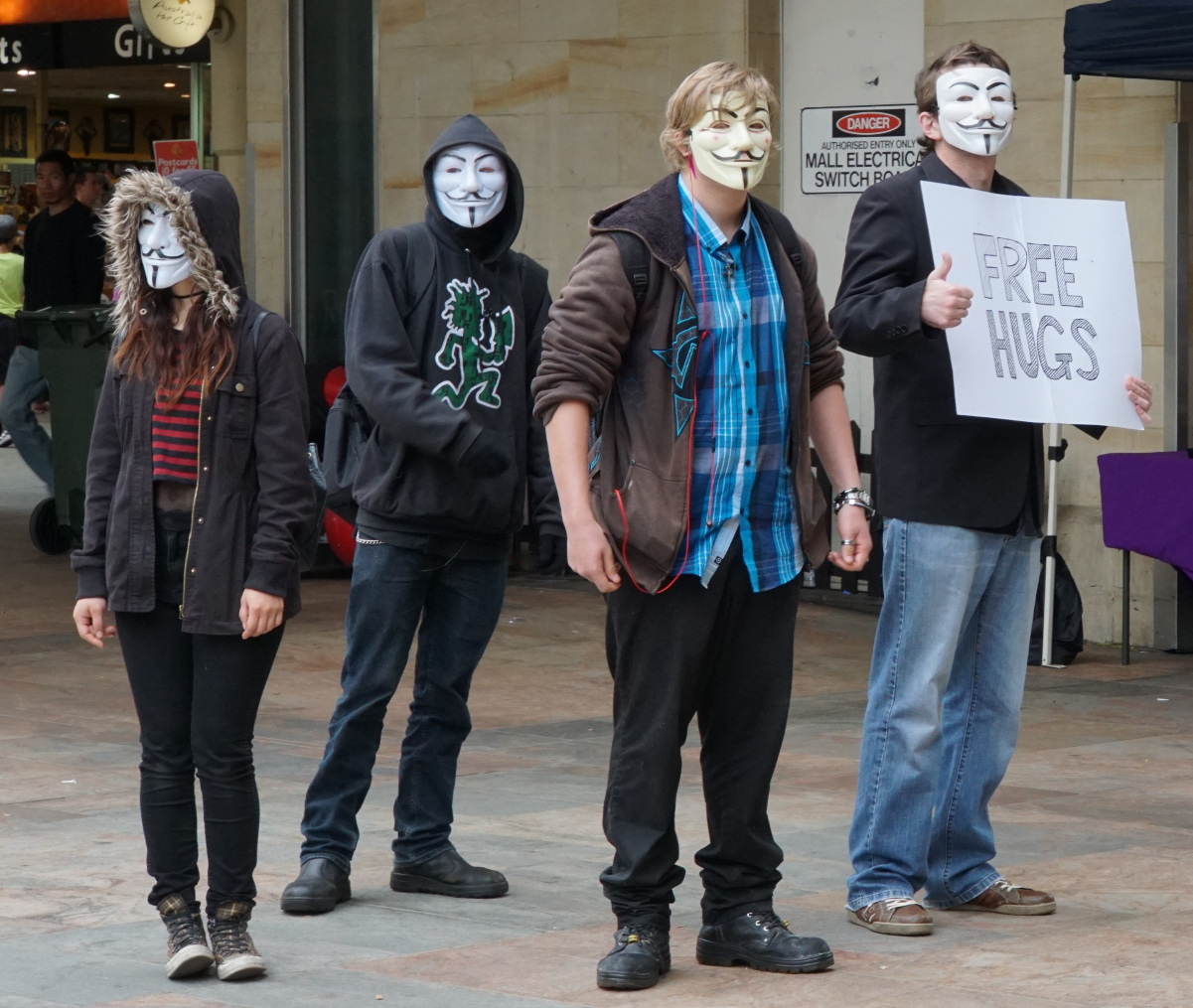Propaganda and Cinema

American media has a plethora of films depicting authoritarian states, dystopian societies and Orwellian narratives. I remember when V for Vendetta was released to the theaters in 2005, many of my friends told me that I should really see it. I had read the graphic novel and found that the film held to the original spirit of the comic while relating to the relevant world of today. While it may seem like watching such films raises general awareness about the types of propaganda that influence us, I see it having a counter effect. Derek Sivers once did a short TED presentation on goals in which he said the following:
“Any time you have a goal, there are some steps that need to be done, some work that needs to be done in order to achieve it. Ideally you would not be satisfied until you’d actually done the work. But when you tell someone your goal and they acknowledge it, psychologists have found that it’s called a ‘social reality.’ The mind is kind of tricked into feeling that it’s already done. And then because you’ve felt that satisfaction, you’re less motivated to do the actual hard work necessary.” -Derek Sivers1
He then went on to quote studies where people who talked about their goals were less likely to fulfill them compared to those who kept them secret. I wondered if dystopian films have the same effect, and if that effect is intentional. Does watching media about revolution against corruption create a social reality, where we feel as if we’re more aware and therefore, less inclined to work towards real revolution? Can films about rising up against a corrupt state be used to pacify a population? Could this be part of the system Gore Vidal talked about?
“Hollywood and Washington have a symbiotic relationship. They both deal with illusions. Reality doesn’t often play much of a part.” -Gore Vidal2
On the opposite end of the spectrum, there are movies that feel as if they are pure pro-government propaganda. The recent film Olympus has Fallen comes to mind, a movie which portrays an impossible scenario of North Korean operatives assaulting Washington with a C130, forcing a take down of the White House. The movie was a tremendous flop. Film critic Maryann Johanson described the movie as, “A vile propagandistic action flick that shamelessly indulges fears of terrorism while also failing on a basic narrative level3.”
Obvious pro-government propaganda in film is nothing new. In 1943, Disney released Der Fuehrer’s Face (originally Donald Duck in Nazi Land), where Donald Duck finds himself in a world where his breakfast consists of stale bread and a single coffee bean dipped in water. Donald must work endless hours in a factory making bombs for the Fuehrer, which eventually leads to his insanity. He wakes up from his nightmare wearing American flag pajamas and immediately hugs a model of the Statue of Liberty, conveniently placed in his window4.

Returning to the film V for Vendetta, one of the icons from the film is the Guy Fawkes mask worn by the main protagonist. Touched by the golden hand of Hollywood, these masks have made their way into the hands of protesters around the world. From Anonymous protesters going up against Scientologists on Tottenham Court Road in London to the members of the Occupy Movement in New York City, activists everywhere are dawning the Time-Warner trademarked facades5. That’s right, the movement of protesters that seek to fight against establishment are purchasing masks that feed the very same establishment and contributing to Time Warner’s multi-billion yearly profits6.
It may seem like a stretch to say that films promoting mistrust of government and social unrest are propaganda pieces, but keep in mind that the entire American modern art movement was a propaganda movement created by the CIA. It was used as an attempt to show the dominance and creativity allowed in capitalist American which the Soviets could not compete against7.
“When I came back to the United States, I decided that if you could use propaganda for war, you could certainly use it for peace. And ‘propaganda’ got to be a bad word because of the Germans using it, so what I did was to try and find some other words so we found the words ‘public relations’.” -Edward Bernays8
The more obvious pro-American propaganda in Hollywood seems easily identifiable. However, I’d argue that even films that portray mistrust of the government and populous led rebellions may also be forms of propaganda, specifically promoted by the US government. By showing an audience a corrupt state, they may feel better about the nation they live in, seeing it as “not that bad.” Counter intuitively, they may also feel like they have insight into the propaganda their own nation is feeding them. Having this knowledge may satisfy any need for uprising, and could be used as a pacification technique.
-
Keep your goals to yourself July 2010. Sivers. TED. ↩
-
History of the National Security State. Documentary 2008. Gore Vidal. ↩
-
Olympus Has Fallen mini review. 27 August 2013. Johanson. Flickfilosopher. ↩
-
New U.S. War Songs. 2 November 1942. LIFE. Retrieved 16 January 2016. ↩
-
Viewpoint: V for Vendetta and the rise of Anonymous. 8 March 2012. Moore. BBC. ↩
-
Masked Protesters Aid Time Warner’s Bottom Line. 28 August 2011. Bilton ↩
-
Modern art was CIA ‘weapon’. 21 October 1995. Saunders. Independent. ↩
-
The Century of the Self. 2002. Curtis. (Documentary Film) ↩